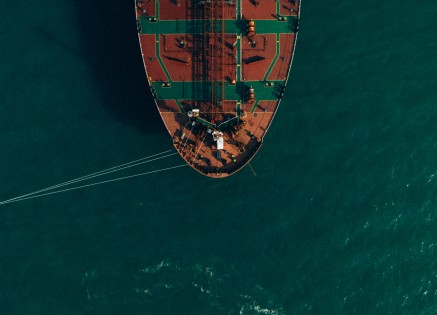Copyright © 2026 lmitac.com All Rights Reserved. Contact - Terms and Conditions - Privacy Policy - Quality Policy - Become an instructor - Vacancies - Sitemap
London Maritime Academy is a trade name for London Premier Groupversion: 2.9.0
London Maritime Academy is a trade name for London Premier Group

Posted On: 6/17/2025, 10:19:20 PM
Last Update: 6/17/2025, 10:20:17 PM
Early on Friday, June 13, Israel launched multiple waves of airstrikes against Iran, focusing on nuclear installations, ballistic missile bases, air defence batteries, and command and control centres. The attacks also claimed the lives of a number of Iranian nuclear scientists and military leaders.
Remarkably, Israel has announced a potential campaign lasting days or weeks, raising questions about future developments, Iran's response, US involvement, and the impact on oil and tanker markets. While no definitive answers are available, scenarios can be discussed by examining past conflicts in the region.
Iran has launched a drone attack on Israel, but most were shot down, and no significant damage was reported. Since then, Iran has been firing ballistic missiles, and analysts expect a forceful response to save face with their domestic population.
Israeli attacks have significantly reduced Iran's ability to reach Israel, affecting its proxies in the region, including Hamas, Hezbollah, Iraqi militias, and Houthis, and toppled the Assad regime in Syria.
Notably, Iran has potential retaliation options, including closing the Strait of Hormuz, disrupting shipping at this choke point, attacking neighbouring oil installations, or targeting U.S. military bases in the region.
Moreover, the potential actions of closing the Strait of Hormuz or attacking energy infrastructure in the region carry significant risks, including soaring energy prices, turning neighbours into adversaries, and potentially drawing the U.S. military into the conflict.
Closing the Straits of Hormuz could hinder Iran's export capabilities and encourage attacks on its energy infrastructure, potentially exhausting Iran's resources and ability to fight back, as the income from exports is crucial.
In addition to impeding Iran's own export capabilities, closing the Straits of Hormuz might encourage Israeli and/or American attacks on their energy infrastructure, including refineries, pipelines, export terminals, etc. The loss of energy export revenue would rapidly deplete Iran's resources and military capabilities.

Iranian oil supplies are at risk due to a decline in production and exports, with most oil market forecasts predicting a 400-500 kb/d decrease. If the conflict escalates, Chinese independent refiners, which buy most of Iran's oil, will need to find alternative crude sources, such as discounted crude from Russia or alternative barrels in the Middle East.
The ISPS Code course in London teaches about the International Ship and Port Facility Security Code, designed to equip participants with the skills to implement and maintain security measures, respond to threats, and understand their roles within the ISPS framework.
After the attacks, tanker rates increased, particularly for VLCCs, the main vessel class for Arabian Gulf exports. This is a normal development under the circumstances, with rates for the Arabian Gulf-East VLCC route rising from WS43 to W55.
Besides, the tanker market is experiencing a significant increase in percentage terms, but it remains in the summer doldrums. Further rate increases may occur in the coming days, but the market may weaken after the weekend. In previous conflicts, charterers would sometimes panic and increase fixing activity to access more cargoes.
Eventually, shipowners are becoming more cautious about entering high-risk areas like the Arabian Gulf, leading to increased tanker rates. Currently, tanker brokers report no surge in fixing activity, and most owners are still willing to bring their tankers into the AG. However, this could change rapidly.
Read more news: